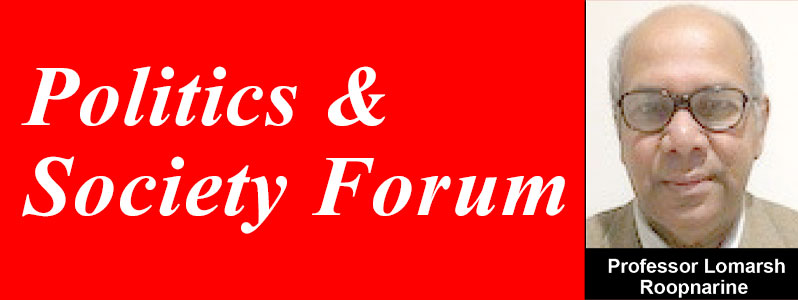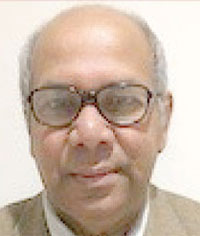SPOKEN language is probably the most defining feature of a person’s life because it reveals where that person was born, where he or she was educated, and where he or she is positioned in the social structure of society. These are not fixed social rules and expectations since many persons in multi-lingual societies do code-switching, and, that is, speak many languages and dialects in one conversation. These dynamics may not reveal a person’s social standing in society. Nevertheless, spoken language reveals more to others than we know of ourselves. If I am permitted to tweak the adage “show me your friends and I will tell you who you are” to speaking, it would sound like this: speak and l will tell who you are.
I grew up in a rural village in Upper Corentyne where life revolved around sugarcane and rice cultivation as well as fishing and raising cattle and various livestock. My parents were peasants. I attended primary and secondary schools. I did not attend the University of Guyana, although I would have loved to. At home, we communicated in Pidgin (broken English), and my parents would speak in Bhojpuri with their generation and older folks, who were still carrying some traditions from India in Guyana. At school, I was taught basic English by some teachers, whom I believe, were not versed in the English Language – one consequential sin of colonialism. In sum, at an early age I was exposed to a variety of languages and dialects but did not have a good command of any except for Pidgin.
I first realised the way I speak when I visited my sister in New Amsterdam. I was 11 years old. One day my sister asked me to pick up some items for her at the grocery store. The grocery stores in New Amsterdam were owned by the Portuguese and Chinese. I ended up at a Chinese grocery store and after standing in line for about fifteen minutes I reached the counter and instead of handing the Chinese gentleman the list, I started to read the items loudly thinking that he did not read English. I was doing well until I got to the sugar item when I heard a peal of loud laughter behind me. I realised they were laughing at me for pronouncing sugar as “sugaa.” One person asked, “you from the coast”?
If that “sugaa” inflection had inflicted feelings of how I speak, then my experience in the United States extended it to unimaginable ways, the epitome of the immigrant existence. I was in Utah, a predominantly white American State. Naturally then, like the typical immigrant experience, I had to learn the English language more intensely to communicate fluently and fluidly; though challenging, I had fewer problems than I anticipated. What I did experience, however, was an embarrassing moment. The telephone rang, and I picked it up to answer, but I held it upside down, putting the lower part of the phone to my ear when it should have been the other way around. I could hear the person on the other side shouting “I cannot hear you”, then someone in the room told me to switch the phone around. At that moment, I realised how much I was held back by my rural upbringing and Forbes Burnham dictatorship on the basics of life. I grew with no television, no telephone, and practically with no of anything that was common in the wider Caribbean, and though I had limited access and use of a telephone, it was not routine enough to get the basics correct.
Fast-forward to my return to Guyana in 1989, after an absence of seven years. I landed at the Guyana airport and when I got to the parking lot, there were at least 10 young males around me begging for one US$1.00 each. I was scared, and I said, “leave me alone”, and one of them responded, “man, you sound like a hunky”, meaning, oh well, I will ask you to figure that one out. In my village, I was told “speak like abbe”, and while I did, I remained pretty much quiet most of the time.
A few days ago, I returned to New Amsterdam with Nevil Boodhan, a prominent tax consultant from No. 64. Village, to see if that Chinese grocery store was still there by Trinity and Main Street, but it was gone. I stood on Main Street thinking about how one situation can really make an impact on one’s life. By the way, I do not speak like any ethnicity or any nation, but I speak like Lomarsh, myself. Now, can you gauge my social status? (lomarsh.roopnarine@jsums.edu).




.jpg)










